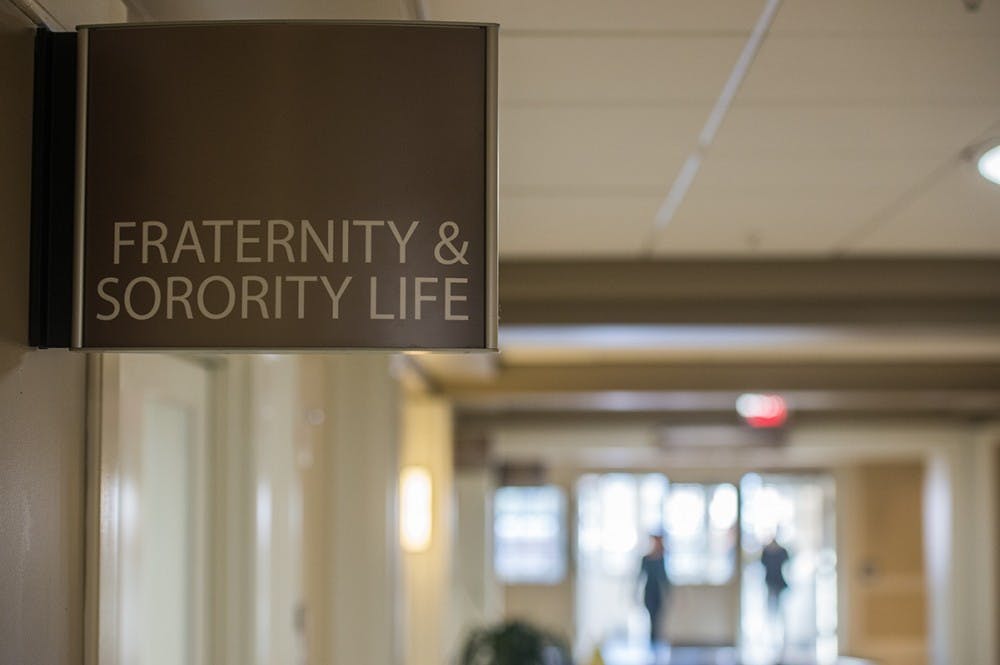中文版请点击此处
Over the past several months, America has experienced a much overdue reckoning on race. Across the nation, institutions and attitudes that have perpetuated societal inequality have faced calls for reform. Given the strong activist culture that has materialized at the University and other college campuses, it is imperative that we, as a student body, critically examine the culture that exists in our backyard. One particular area that is in desperate need of increased scrutiny is the Greek rush process.
Every winter, hundreds of University students register and take part in either sorority or fraternity rush. Through successive rounds of social events as well as brotherhood and sisterhood votes, individual chapters slowly narrow down their pool of rushees to the ones for whom they will ultimately offer bids. While this system has the benefit of allowing individual rushees and house members to get a sense of each other, it is highly susceptible to the nefarious and prejudicial impact of implicit bias.
As a member of Greek life myself, I can attest that many of the sorority and fraternity members on Grounds are genuinely good people who do not tolerate racial inequity. Additionally, I have enough respect for the various groups on Grounds to accuse none of them of employing rush criteria which intentionally prevent minority membership. However, I believe none of us are immune to unconscious bias. In a group environment — such as the Greek rush process — where vague characteristics such as fit and personality are used to select future members, the impact of racial bias is unfortunately magnified.
My belief that bias is a significant factor is not without reason. As someone with a visibly recognizable disability, I can testify that throughout the rush process some brothers acted in a way that showed a clear preference for those that conform to the typical Greek demographic — white, able-bodied, heterosexual and upper-middle-class — before I even had the opportunity to introduce myself. Based on my experiences, it is not at all a stretch to assume that other minority groups face similar challenges during rush.
While not a definite fix to these issues, demographic reporting on the part of the Inter-Fraternity Council, the Inter-Sorority Council and individual groups can help draw needed attention towards any racial disparities that may exist between the initial composition of those who enter the rush process and those who are ultimately extended bids. Armed with this information, members of the Greek community will hopefully be emboldened to revise their recruitment policies and practices in a way that promotes racial inclusivity.
In practice, the implementation of such measures should be relatively painless. For both sorority and fraternity rush, a pre-rush registration process is required. It is hard to argue that the inclusion of an optional racial-identity question on the registration forms would be prohibitively time-intensive or expensive to accomplish. With this in place, all that would be required is for individual houses to report to either the IFC or ISC the racial composition of those they offered bids to that semester. In conjunction, these actions will allow for both the IFC and the ISC to publish a demographic report on the annual rush process that compares the cohort that registered to rush to those that were ultimately extended bids.
It is important to emphasize that this suggestion is not an indictment of the University’s Greek system nor the individuals responsible for voting during rush. Yet in any environment where prospective members are assessed on entirely subjective criteria, it is impossible to deny the existence of implicit bias. To that end, the publication of such reports by the IFC and ISC can only serve to strengthen the Greek community on Grounds. If the data shows that a racial disparity does not exist, then that can only serve to demonstrate that fraternities and sororities have made great strides to move beyond their history of racial exclusion. On the other hand, if the results indicate a pattern of race-based discrimination, then well-meaning houses will have the tools and data necessary to implement meaningful recruitment reforms.
Considering the University of Virginia’s troubled record on race relations, we can not afford to ignore easily accomplishable reforms that have the potential to address inequality in an institution that represents 31 percent of undergraduates. The rush process, while being a valuable means of introducing students to the world of Greek life, is not perfect. Thus, as a University community, we should demand increased transparency if we are truly serious about remedying inequality on Grounds.
Max Bresticker a Viewpoint Writer for The Cavalier Daily. He can be reached at opinion@cavalierdaily.com.
The opinions expressed in this column are not necessarily those of The Cavalier Daily. Columns represent the views of the authors alone.







